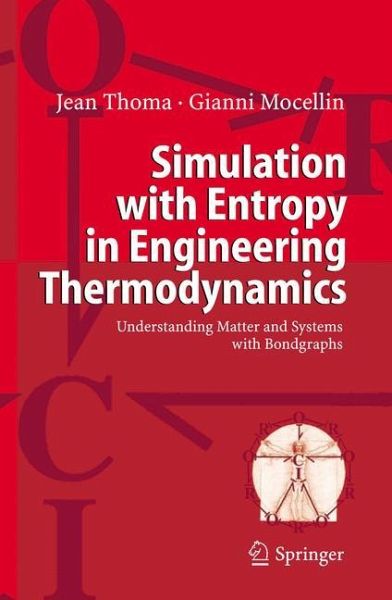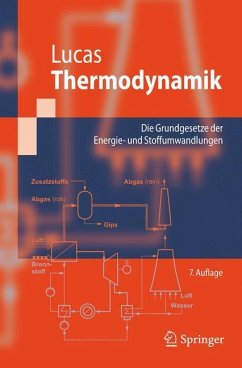
Simulation with Entropy in Engineering Thermodynamics
Understanding Matter and Systems with Bondgraphs
Versandkostenfrei!
Versandfertig in 6-10 Tagen
76,99 €
inkl. MwSt.
Weitere Ausgaben:

PAYBACK Punkte
38 °P sammeln!
Students, academics and researchers will find this book an invaluable contribution to the understanding of thermodynamics. In this new treatment of the subject, the authors focus on the principles of thermodynamic variables and the practical simulation of thermodynamic systems, and endeavor to show how simple thermodynamics really is. It offers a unique view of modern complex systems engineering and its ramifications.
It is with great pleasure that we present this book to the public. In principle it is about thermodynamics, especially the simulation of thermo?uid systems. In popular opinion, thermodynamics is considered to be highly abstract and di?cult to comprehend with its many symbols. We endeavor to show the reader how simple and beautiful thermodynamics really is. To achieve this simplicity we apply two innovations: Forus,entropyisasubstance-likeconcept,akindofthermalcharge,analogous to the well-known electric charge, and not the abstract and incomprehensible Clausius integral. This is by no means a new idea: apart from Sadi Carnot himself, people such as Callendar (1911), Job (1971), Falk (1976) and Fuchs (1996) all adopt the same point of view. We stress where thermal charge is analogous with electric charge and also point out the di?erences between them. To represent thermal systems we use Bondgraphs (BG), which are admirably suited to this purpose. They allow us to avoid many complexequations with numerous subscripts and superscripts. Of course, literature on BG abounds, including three books by present co-author Prof. Thoma and several other books published by Springer. We use BG more as a means to clarify the nature of physical variables and theiranalogiesinother?eldsratherthanfromtheviewpointofelectronicdata processing. For example, the di?erence between c (speci?c heat at constant v volume)andc (speci?cheatatconstantpressure)iscommontoallmultipo- p Cs; and BG make this very clear.













